第22章 Chapter (4)
He answered, with tears in his eyes, that he had a good hope he was going where he should not do what he had been obliged to do in this world.
"I've killed men in my time, major, but not in malice, but in what I thought a just war in defence of my country. And as I bore no malice against those I killed, neither do I bear any against those who have killed me.
And I heartily trust in God for Christ's sake, that we shall yet, one day, meet together, where we shall forgive and love one another like brothers.
I own, indeed, major, that had it so pleased God, I should have been glad to stay a little longer with you to fight for my country. But however, I humbly hope that my death is of God; which makes it welcome to me, and so I bow me to his blessed will. And now, my good friend, as I feel I have but a little time to live, I beg you will do a few things for me when I am dead and gone."I could not speak; but gathering my answer from my tears, and the close press I gave his hand, he thus went on, but it was in a low voice and laborious.
"You see that sword? -- It is the one which governor Rutledge presented to me for my services at Fort Moultrie -- give that sword to my father, and tell him I never dishonored it. If he should weep for me, tell him his son died in hope of a better life. If you should see that great gentlewoman, Mrs. Elliot, tell her I lost my life in saving the colors she gave to our regiment. And if ever you should come across poor Jones and his wife, and little boy, tell them Jasper is gone; but that the remembrance of the hard battle which he once fought for their sakes brought a secret joy to his heart just as it was about to stop its motion for ever."He spoke these last words in a livelier tone than usual, but it was like the last kindling of the taper in its oil-less socket --for instantly the paleness of death overspread his face, and after a feeble effort to vomit, with convulsions, the natural effect of great loss of blood, he sunk back and expired.
From this victim of D'Estang's madness, I went with a heavy heart on parade, to take a review of the sad remains of the battle. The call of the roll completed the depression of my spirits. To every fourth or fifth name there was no answer -- the gloomy silence which ensued, told us where they were. About twelve o'clock we sent in a flag to the garrison for permission to bury our dead. Curiosity led me to accompany the party destined to this mournful duty. I had prepared myself for a sorrowful sight;but ah! what words can express what I then saw and suffered!
A scattered few lay here and there on the utmost verge of the field, killed by cannon shot, and so mangled, that in some instances, it was hard to tell who they were. As we advanced, they lay thicker and thicker.
Some, not quite dead, were constantly crying, "Water! water! --Oh! for God's sake, a little water!" -- Others lay quite dead, but still their lifeless visages retained the dark frowns of war.
There, on the side of the enemy's breast-work, lay the brave ensign Boushe, covering with his dead body, the very spot where he had fixed the American standard. His face was pale and cold as the earth he pressed, but still it spoke the fierce determined air of one whose last sentiment towards those degenerate Britons was, "There d--n you! look at the stripes of liberty."
Close by ensign Boushe, lay that elegant young man, Alexander Hume, Esq. with his sword still grasped in his stiffened fingers.
My heart bled within me, when I looked on young Hume, where he lay in all the pale beauties of death. He was to have been married the week following, to a charming woman; but such was his zeal to serve his country, that he came a volunteer to our camp, and met his death the next morning after he joined us.